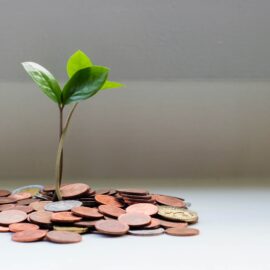

This article is an excerpt from the Shortform book guide to "Capital in the Twenty-First Century" by Thomas Piketty. Shortform has the world's best summaries and analyses of books you should be reading.
Like this article? Sign up for a free trial here .
Why are more people inheriting wealth? How does inherited wealth contribute to rising inequality?
During their lifetimes, baby boomers accumulated large stocks of capital. As they begin to pass away, their children are inheriting this wealth—but it’s creating an unequal society.
Keep reading to learn why a new Gilded Age might be upon us thanks to a growth in inherited wealth.
The Return of Inherited Wealth
In Capital in the Twenty-First Century, Thomas Piketty argues about the coming demographic slowdown and the tendency of capital returns to be greater than overall growth (which Piketty notes mathematically as r>g) in a world with a rising capital-to-income ratio.
As growth slows down, Piketty warns that inherited wealth will come to account for a much greater share of overall wealth than that earned through work and savings. He writes that this is another indicator of rising inequality, as wealth earned in the past and handed down to rich heirs comes to far eclipse the wealth that people can earn in a lifetime.
(Shortform note: Some evidence suggests that the coming wave of inheritance has already begun. One paper relying on Federal Reserve and academic data estimates that about $36 trillion in wealth is set to transfer from its current owners to their heirs over the next 30 years. And that’s just accelerating the already-skyrocketing pace of bequests. In 2016, Americans collectively inherited a staggering $427 billion—an increase of 119% from a generation ago.)
The Baby Boomer Inheritance Windfall
Piketty projects that increased mortality rates—as the large and aging baby boomer cohort begins to die off—will contribute significantly to the growth of inherited wealth. The baby boomers, he writes, were the largest generation at the time of their birth—larger than any cohort that preceded them.
Because of their long lifespans relative to previous generations, they had more time to accumulate large stocks of capital—and, as long as the rate of return on capital is greater than the rate of economic growth (r>g), these stocks of wealth will continue to beget still greater wealth relative to economic growth as a whole. As the baby boomers begin to die off en masse, those growing capital stocks will be bequeathed to their heirs—representing a massive windfall of inherited wealth.
What this portends, Piketty warns, is a return to a historical era—like the Gilded Age in the United States, the Victorian Era in Britain, or the Belle Époque in France—in which getting a good education, working hard, saving, and investing wisely all count for far less than having the good fortune to be born to wealthy parents.
An Unequal Society Is a Stagnant Society
Piketty argues that such a highly capital-intensive society is incompatible with a dynamic, meritocratic, and innovative economy where it pays to work hard, take risks, and acquire new skills. After all, if income from ownership matters more than income from labor, there’s little incentive to work. This introduces a potentially dangerous feedback loop of inequality: Demographic decline leads to lower rates of economic growth, which leads to a rising capital-to-income ratio, which increases inequality, which reduces incentives to work, which further reduces economic growth, and so on.
In such a society, working for a living is a sucker’s game. Instead, it’s better to be lucky enough to be born into wealth—or, at least to try and marry into wealth.

———End of Preview———
Like what you just read? Read the rest of the world's best book summary and analysis of Thomas Piketty's "Capital in the Twenty-First Century" at Shortform .
Here's what you'll find in our full Capital in the Twenty-First Century summary :
- An analysis of incomes, tax returns, and estate tax returns across different countries
- How capitalism, by its nature, generates economic inequality
- How inherited wealth will soon account for more than earned income






